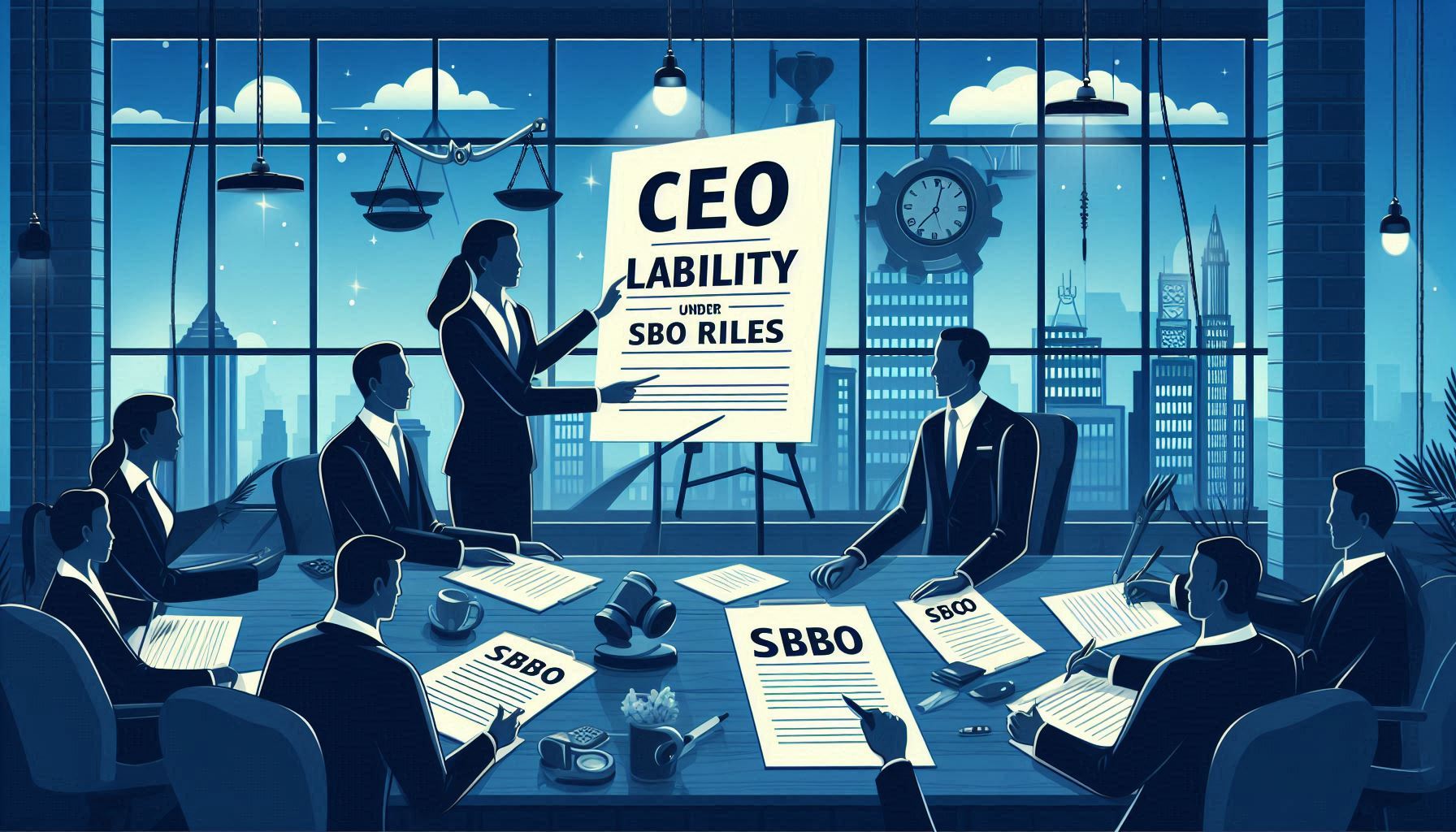|
Powered by AltAlpha AI
|
Arihant Sethia and Dev Shroff are students at Gujarat National Law University.
ABSTRACT
The Doctrine of Corporate Opportunity serves as a pivotal ethical direction for directors and officers navigating the intricate realm of corporate governance. This comparative exploration dissects the evolution and application of this doctrine, focusing on its integration within the Indian legal landscape while reflecting the author’s perspectives. Spanning global jurisdictions, the article elucidates the doctrine’s foundations from seminal cases in the United Kingdom, North America and India. It accentuates the legislative strides, such as the codification in the English Companies Act of 2006, and juxtaposes diverse legal approaches, ranging from stringent adherence in English courts to nuanced evaluations in the United States.
INTRODUCTION
In the realm of corporate governance, the Doctrine of Corporate Opportunity stands as a pillar, guiding the ethical responsibilities of directors and officers toward the companies they serve. This doctrine, fundamental to safeguarding the interests of corporations, evolves through legal precedents and statutes, setting clear boundaries for directors regarding the use of company resources and opportunities for personal gain.
However, while jurisdictions like the United Kingdom have witnessed the crystallisation and evolution of this doctrine through robust legal foundations and landmark cases, India’s legal landscape concerning the Doctrine of Corporate Opportunity remains ambiguous and largely unsettled. This dearth of a definitive framework poses multifaceted challenges, leading to practical ramifications that echo throughout the Indian corporate sphere.
EVOLUTION OF DOCTRINE OF CORPORATE OPPORTUNITY
This idea has been notably applied in a number of global contexts. Judges from all throughout the world have utilised and comprehended it. Although several parties in the UK and North America have cited this ideology, it is not very well-liked in India. The Canadian Aero Service Ltd. v. O’Malley case is noteworthy because it establishes a legal principle that forbids an officer or director of a corporation from taking advantage of a business opportunity that is offered to the corporation or otherwise legitimately belongs to it for themselves or any of their affiliates. Here, corporate opportunity refers to business opportunities that may be beneficial for the corporation. “It is not the source of the information, but the use to which it is applied, which is important in these matters.”[i]
Factors which determine the principle of corporate opportunity.
In Canadian Aero Service Ltd v. O’Malley, the courts analysed several factors to determine whether something is a corporate opportunity. These factors include:
In the case of Abbey Glen Property Corp v. Stumborg, the court held that acting due to motives of personal profit or advantage while in the capacity of a fiduciary violates equity. Even if the harmed corporation cannot establish its financial capability to have exploited the opportunity, the usurping party may still be held liable for appropriating the corporate opportunity as a faithless fiduciary[ii], a corporation can specifically renounce its interest in a corporate opportunity if the opportunity is disclosed to the board or shareholders who elect not to pursue it.[iii]
Tests for determining corporate opportunity
Internationally, courts have relied on two tests to determine a case of corporate opportunity:
- Guth and the line-of-business test
According to Guth v. Loft Inc., if a corporate officer or director is presented with a business opportunity that the corporation can afford, is by nature in the corporation’s line of business and is advantageous to it, and in which the corporation has an interest or a reasonable expectation, and by accepting the opportunity, the officer or director’s self-interest will conflict with the corporation’s, the law will not allow him to take advantage of the opportunity for himself.
- The interest/expectancy test
Lagarde v. Anniston Lime & Stone Co. is credited with creating the interest/expectancy test, which links corporate opportunities to those in which the business has a prior interest in real estate, or, to use the terminology of this test, opportunities in which the business has an interest or that it has a recognised expectancy of acquiring.
DOCTRINE OF CORPORATE OPPORTUNITY IN THE INDIAN CONTEXT
In the Indian context, the Doctrine of Corporate Opportunity has been relatively underexplored within the legal framework. The analysis and application of this doctrine in Indian courts have been limited, with the Vaishnav Shorilal Puri & Seaworld Shipping and Logistics Pvt. Ltd. v. Kishore Kundanlal Sippy (“The Vaishnav Shorilal Case”)[iv] case being one of the primary instances where this doctrine was delved into. However, the interpretation and implementation in this case reflected a somewhat confused amalgamation of principles borrowed from English and American jurisprudence.
The Vaishnav Shorilal case involved two equal shareholder groups within a company, with one group actively managing its affairs. This managing group, having acquired information and contacts in their capacity as directors, redirected a clear corporate opportunity to another company they formed themselves. The court’s analysis in this case was influenced by Section 88 of the Indian Trusts Act, 1882, which outlines the duties owed by fiduciaries, encompassing honesty, loyalty, and disclosure.
CONCLUSION
Indian jurisprudence on corporate opportunity demands further evolution and clarity. A cohesive framework aligning the fiduciary duties of directors with the preservation of corporate opportunities for the benefit of the company is necessary. This framework should be tailored to suit the nuances of Indian corporate law and must offer practical guidance to directors, fostering a balance between their entrepreneurial inclinations and their fiduciary responsibilities.
The Indian Jurisprudence on the Doctrine of Corporate Opportunity is in a nascent stage. The limited judicial exploration, as evidenced in the Vaishnav Shorilal case, necessitates a more robust and contextually sensitive approach, ensuring alignment with the evolving landscape of Indian corporate law and the specific duties outlined for directors under the Companies Act, 2013.
It is evident that this ethical principle plays a crucial role in guiding directors and officers within companies worldwide. The focus on the Indian context reveals both the budding integration and the gaps in understanding this doctrine within the country’s corporate governance.
The absence of a precise framework means there’s room for interpretation, and this can create confusion. This becomes even more critical when we consider the diverse corporate landscape in India. There is a need for a more tailored approach that understands our unique challenges and aligns with our corporate ethos.
WAY FORWARD
It is imperative for Indian legal scholars, policymakers, and practitioners to collaborate on refining and solidifying the Doctrine of Corporate Opportunity within the country’s legal framework. This necessitates a concerted effort to bridge the existing gaps between international jurisprudence and domestic legislation, ensuring that principles from seminal cases like Canadian Aero Service Ltd. v. O’Malley and Guth v. Loft Inc. are effectively integrated into Indian corporate law. To achieve this, comprehensive amendments or supplementary regulations to the Companies Act of 2013 may be required, explicitly addressing the intricacies of corporate opportunities and directors’ fiduciary duties.
[i] Aas v. Venham [1891] 2 Ch. 244
[ii] Abbey Glen Property Corp v. Stumborg, [1978] Carswell Alta 236 (Alta. C.A.)
[iii] Peso Silver Mines Ltd v. Cropper, [1966] Carswell BC 90 (S.C.C.)
[iv] Vaishnav Shorilal Puri; Seaworld Shipping and Logistics Pvt. Ltd v. Kishore Kundanlal Sippy, [2004] 120 Comp Case 681






